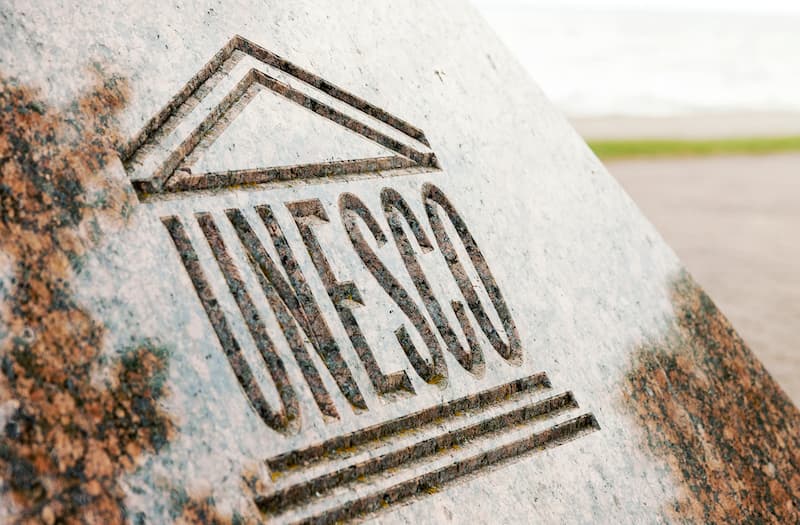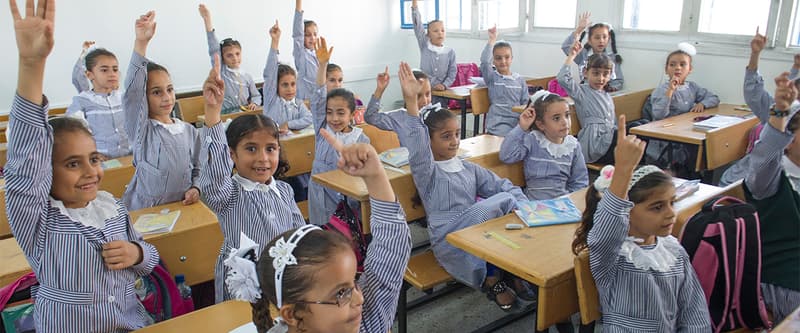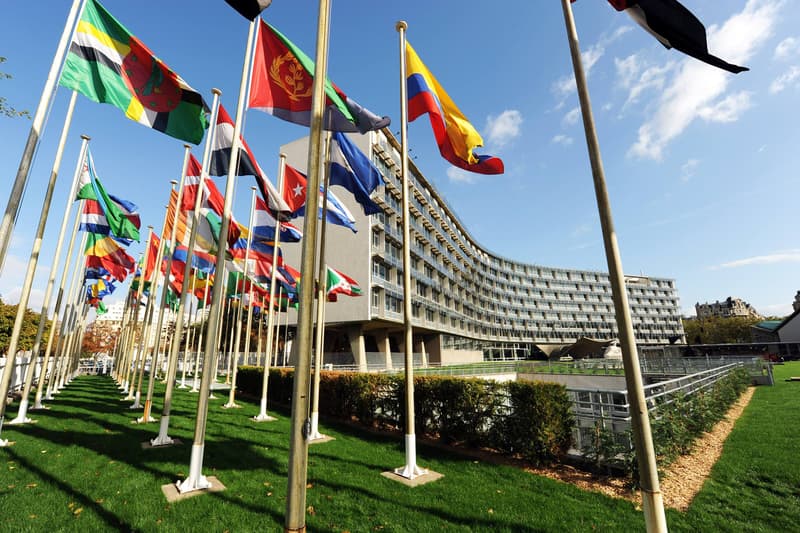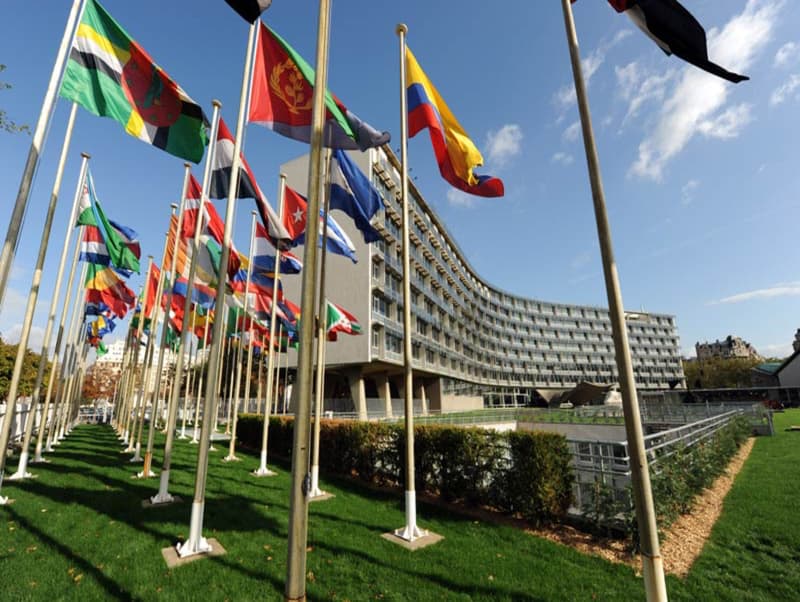Senior Project Officer (Education)
Paris
- Organization: UNESCO - United Nations Educational, Scientific and Cultural Organization
- Location: Paris
- Grade: Mid level - P-4, International Professional - Internationally recruited position
-
Occupational Groups:
- Education, Learning and Training
- Project and Programme Management
- Closing Date: 2023-12-01
Post Number : ED/PA 224
Grade : P-4
Parent Sector : Education Sector (ED)
Duty Station: Paris
Job Family: Education
Type of contract : Project Appointment
Duration of contract : 1 year
Recruitment open to : Internal and external candidates
Application Deadline (Midnight Paris Time) : 01-DEC-2023
UNESCO Core Values: Commitment to the Organization, Integrity, Respect for Diversity, Professionalism
Duration of contract: 1 year with possibility of extension subject to availability of funds and satisfactory performance. OVERVIEW OF THE FUNCTIONS OF THE POST
Located within the UNESCO Division for Education 2030, the Section of Education for Inclusion and Gender Equality (ED/E30/IGE) supports Member States and other partners in the implementation of activities to achieve gender equality and inclusion in and through education, and the achievement of Sustainable Development Goals 4 and 5 on inclusive quality education and lifelong learning, and gender equality.
The Section’s work is guided by the UNESCO strategy for gender equality in and through education 2019-2025, and its three pillars aiming to support: better data to inform action for gender equality in and through education; better legal, policy and planning frameworks to advance rights; and better teaching and learning practices to empower.
The Section supports coordination across UNESCO to ensure coherence, complementarities and synergies within UNESCO’s Education Sector and across UNESCO programme sectors, field offices and institutes, as well as with external partners. It also leads and contributes to many initiatives aiming for collective action with civil society, academia, bilateral and multilateral agencies and the private sector to advance gender equality in and through education. The Section also supports capacity-development of the gender architecture of the Education Sector to ensure sufficient capacity for mainstreaming gender equality in UNESCO’s assessment, planning and proposal development processes, as well as in monitoring, evaluation and communication of work on gender equality in and through education.
One priority area of UNESCO’s work on gender equality in and through education is advancing girls’ participation in science, technology, engineering and mathematics (STEM) education. The PA will be responsible for implementing, monitoring and reporting on sectional and cross-sectional and -divisional, regular and extra budgetary, projects and programmes on girls’ participation in STEM education as well as identifying potential collaborations and opportunities for resource mobilisation.
Long DescriptionUnder the overall authority of the Assistant Director-General for Education, the guidance of the Director of the Division for Education 2030 and direct supervision of the Chief of the Section of Education for Inclusion and Gender Equality (ED/E30/IGE), the incumbent will undertake the following tasks and responsibilities:
1. Programme Development and Management
- Lead on the development, implementation, monitoring and evaluation and reporting on sectional and cross-sectional and -divisional, regular and extra budgetary projects and programmes on girls’ participation, learning and retention in STEM education;
- Oversee the articulation of the UNESCO’s programmes on girls’ education in STEM within the UNESCO programme on gender equality in and through education, including the development of work plans and activity reports following UNESCO’s administrative system and reporting frameworks;
- Monitor the budget and contractual arrangements of programmes, events and projections on this thematic area in line with UNESCO’s regulations and procedures;
- Coordinate the technical and logistical planning of meetings, conferences, seminars and workshops organized or co-organized by the Section on this thematic area.
2. Coordination, Partnership and Resource Mobilization
- Coordinate the Section’s management of the programme of work on girls’ participation in STEM education within UNESCO’s Education Sector and across UNESCO programme sectors, field offices and institutes;
- Establish and reinforce professional linkages with other parts of UNESCO (including relevant institutes, regional bureaus, etc.), research and government institutions in Member States, key organizations and professional networks, in the field of girls’ education in STEM;
- Advocate for, and lead multi-partner collaborative initiatives in the areas of research, policy, capacity-development, curriculum, digital skills development, mentoring and role models to enhance girls’ education in STEM;
- Contribute to the Section’s resource mobilization initiatives by playing an active role in initiating and fostering relationships, identifying and engaging with potential donors, and preparing project proposals on this thematic area.
3. Technical Expertise and Policy Advice
- Provide advice to governments, peers, management and colleagues on a variety of subject specific items, such as tools, resources and policies;
- Contribute expertise to the substantive aspects of UNESCO’s work on STEM education: collecting and analysing data and information to fill knowledge gaps and conducting situation and trend analyses to recommend particular courses of action based on findings;
- Coordinate publications and research initiatives and review research reports for quality assurance, prepare policy briefs and propose policy recommendations for the advancement of girls’ participation, learning and retention in STEM education.
4. Representation, Advocacy and Communication
- Represent UNESCO upon request by the Chief of Section, in meetings, conferences or events requiring UNESCO’s participation;
- Oversee the ongoing development of communication products, including ensuring regular contributions to web and printed content and dissemination to colleagues, peers and stakeholders;
- Support the work of the Section’s Communications Officer, providing guidance on communications and advocacy campaigns, social media and other communications activities on this thematic area.
Education
- Advanced university degree (at least Master or equivalent) in education, social sciences, public policy, international development or other related areas.
Work Experience
- Minimum of 7 years of progressively relevant experience in the coordination of development programmes or project management in the area of STEM education, with a a focus on girls’ participation, of which preferably 3 years are acquired at the international level.
- Experience in project coordination, and dealing with partners and networks in education and gender equality.
Skills and Competencies
- Strong project management and analytical skills, result-oriented approach, and ability to identify key strategic issues, objectives, opportunities and risks, and familiarity with the use of theory of change and results framework.
- Ability to provide technical assistance on the integration of gender equality in programme and policy design, delivery and monitoring and evaluation.
- Ability to work independently and with minimum supervision.
- Ability to work in a multicultural environment and team cooperation.
- Good knowledge and understanding of the international development agenda, in particular in the field of education and gender equality.
- Excellent interpersonal skills, including the ability to effectively deal with partners and networks in private and public sectors in education and teacher development.
- Excellent level of IT skills (MS Office) and communication management;
Languages
- Excellent knowledge (oral and written) of English or French and good knowledge of the other.
Work Experience
- Experience within the UN system, with multilateral agencies or international cooperations.
Languages
- Knowledge of other UNESCO official language (Arabic, Chinese, Russian, Spanish).
UNESCO’s salaries consist of a basic salary and other benefits which may include if applicable: 30 days annual leave, family allowance, medical insurance, pension plan etc.
The approximate annual starting salary for this post is 99,657 US $.
For full information on benefits and entitlements, please consult our Guide to Staff Benefits.
SELECTION AND RECRUITMENT PROCESSPlease note that all candidates must complete an on-line application and provide complete and accurate information. To apply, please visit the UNESCO careers website. No modifications can be made to the application submitted.
The evaluation of candidates is based on the criteria in the vacancy notice, and may include tests and/or assessments, as well as a competency-based interview.
UNESCO uses communication technologies such as video or teleconference, e-mail correspondence, etc. for the assessment and evaluation of candidates.
Please note that only selected candidates will be further contacted and candidates in the final selection step will be subject to reference checks based on the information provided.
FooterUNESCO recalls that paramount consideration in the appointment of staff members shall be the necessity of securing the highest standards of efficiency, technical competence and integrity. UNESCO applies a zero-tolerance policy against all forms of harassment. UNESCO is committed to achieving and sustaining equitable and diverse geographical distribution, as well as gender parity among its staff members in all categories and at all grades. Furthermore, UNESCO is committed to achieving workforce diversity in terms of gender, nationality and culture. Candidates from non- and under-represented Member States (last update here) are particularly welcome and strongly encouraged to apply. Individuals from minority groups and indigenous groups and persons with disabilities are equally encouraged to apply. All applications will be treated with the highest level of confidentiality. Worldwide mobility is required for staff members appointed to international posts.
UNESCO does not charge a fee at any stage of the recruitment process.








